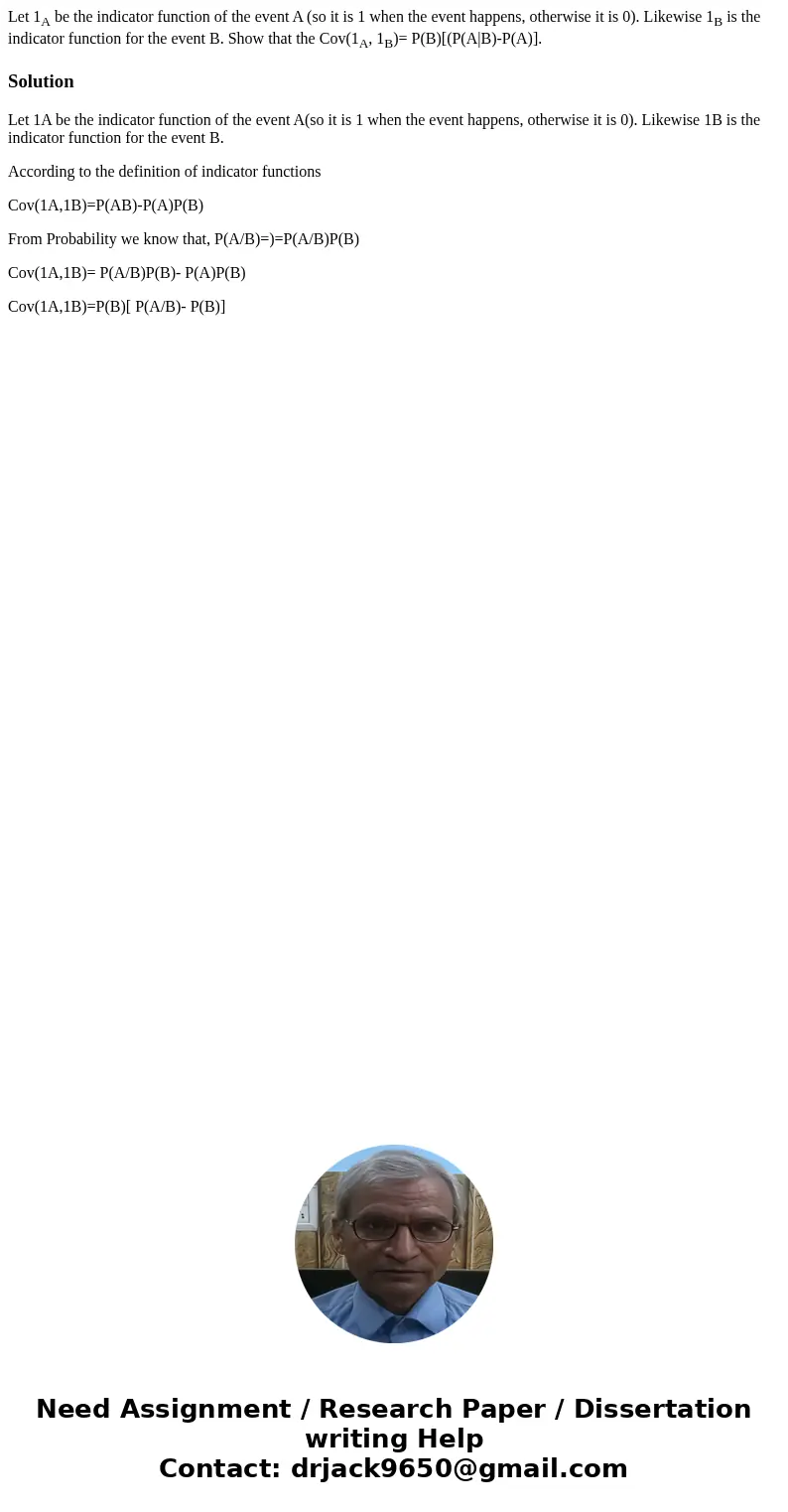Let 1A be the indicator function of the event A so it is 1 w
Let 1A be the indicator function of the event A (so it is 1 when the event happens, otherwise it is 0). Likewise 1B is the indicator function for the event B. Show that the Cov(1A, 1B)= P(B)[(P(A|B)-P(A)].
Solution
Let 1A be the indicator function of the event A(so it is 1 when the event happens, otherwise it is 0). Likewise 1B is the indicator function for the event B.
According to the definition of indicator functions
Cov(1A,1B)=P(AB)-P(A)P(B)
From Probability we know that, P(A/B)=)=P(A/B)P(B)
Cov(1A,1B)= P(A/B)P(B)- P(A)P(B)
Cov(1A,1B)=P(B)[ P(A/B)- P(B)]

 Homework Sourse
Homework Sourse